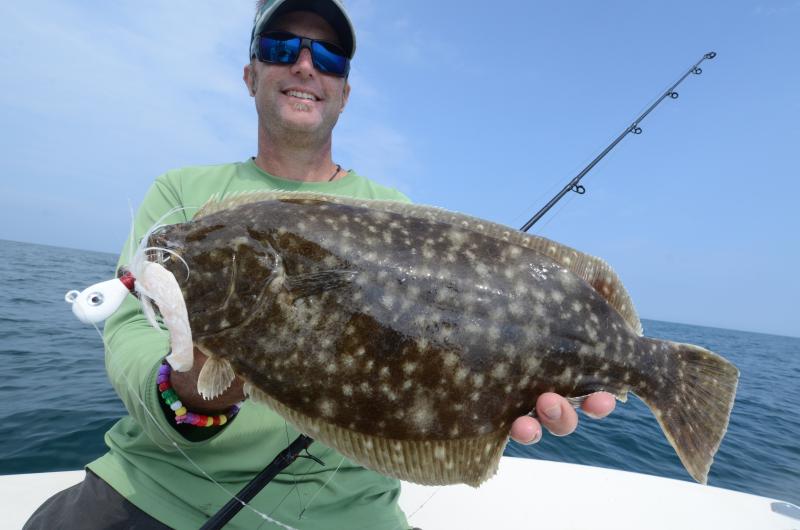Storm likely to impact fishing
The current storm that has lashed the coast for days will leave a changed fishery. If the water temperature drops more than one or two degrees, the fish will be off their feed until they adjust to the cooler temperatures. Bottom fish, like sea bass and flounder, will have been tossed around by the strong currents and big waves, so they may take a day or two to settle down. The sea bass bite after Hurricane Dorian was red hot, so it pays to go out and take a chance.
The strong northeast wind may keep bait such as mullet and bunker trapped in tidal creeks and bays until we get a west wind that will move them out. This may be the time to fish the beach or the Inlet to take advantage of the presence of migrating bait.
Getting offshore is always a challenge in the fall, but tuna could show up in good numbers from the inshore lumps to the canyons. The northeast wind may blow warm water as far west as the inshore lumps, so the long run to the deep may not be needed.
In spite of the current run of bad weather and slow fishing, I wouldn’t put up my fishing tackle just yet. There should be plenty of good action in the weeks ahead and you want to be ready when the fish turn back on.
Fishbites
In the interest of transparency, I will tell you that the Fishbites company did send be some samples of their products in late September. By then, I had already used Fishbites for several years, but not to the extent that I used them in 2019.
I do fishing reports every day for WGMD, and I kept hearing Fishbites as the bait of choice in the surf and in Delaware Bay for kings, spot and trout. On my first trip to the beach, I bought a dozen bloodworms and a package of Fishbites bloodworms. I fished two rods, one with bloodworms and one with Fishbites bloodworms. Both caught kings, trout and spot. The difference was the Fishbites bloodworms stayed on the hook and didn’t need replacing after every cast. When the day was over, I put the unused Fishbites back in the package for the next trip. The unused bloodworms had to be tossed. The bloodworms were $12 a dozen. The Fishbites bloodworms were $8 a pack. That was the last dozen bloodworms I bought in 2019.
In the package the Fishbites folks sent me were two new products. Fishbites Fight Club Saltwater are scent-releasing lures that may be used on jigs, as a Texas rig or on a drop rig. I put one on my metal jig during the trip to Virginia Beach and it drew savage strikes from black sea bass.
The other new product is Fishbites Bob’s Your Uncle strips. These will be great on bucktails or plain jigs to attract flounder, rockfish or trout. I have not used mine yet, but hope to before winter sets in.
For more information on Fishbites, go to fishbites.com.
Summer flounder, black sea bass, scup and bluefish
The National Oceanic and Atmospheric Administration has issued the final rule on summer flounder, scup, black sea bass and Atlantic bluefish. While no regulations were in this final rule, the regulations for 2020 will be made using this information.
As for summer flounder, the report said overfishing was not occurring and the stock was not overfished. In the past, this status has resulted in regulations that remained unchanged from one year to the next. Let’s hope such is the case for 2020.
In the case of scup and black sea bass, the current regulations will remain in place until early 2020 when the latest stock assessments will be used to make changes as required to compensate for overages. In the case of bluefish, some of the recreational quota will be shifted to the commercial side. The reason for this is because the recreational sector has failed to retain their quota for several years. The fact that most of us release bluefish does not enter into the equation.
The recreational harvest limit for scup (porgy) will be 7.37 million pounds. It will be 11.62 million pounds for bluefish and 3.66 million pounds for black sea bass. Delaware, Maryland and Virginia will have the same regulations for these species and for summer flounder if we stay with a regional format.
It would appear to me that the regulations will remain the same going into 2020, but I have been wrong before when trying to guess what regulators will do. Stay tuned and I will try to keep you up to date on the latest regulations.


















































